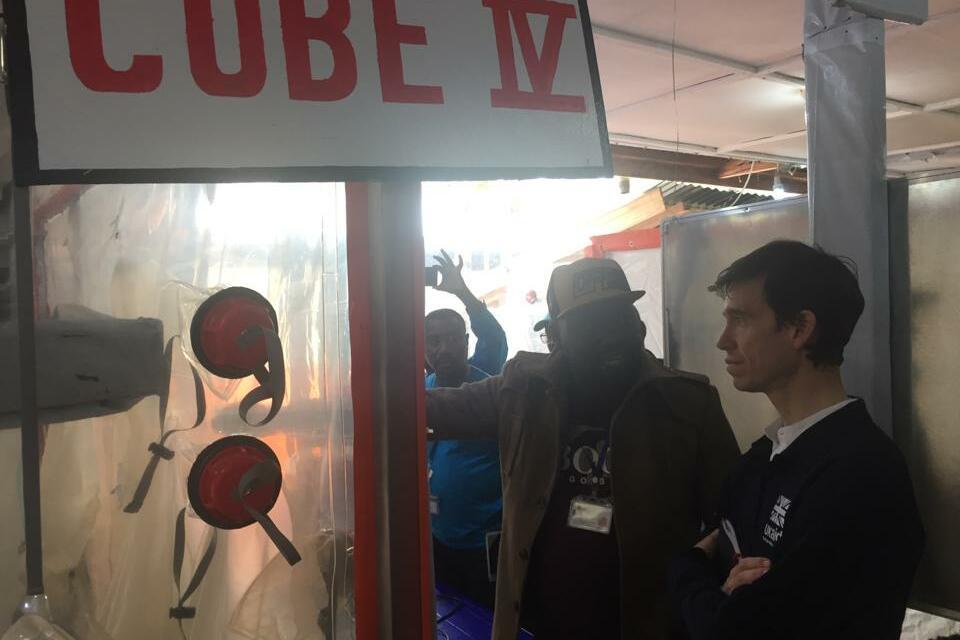Play all audios:
News story NEW UK AID FUNDING TO TACKLE EBOLA IN DRC The UK has announced fresh support to help deal with the Ebola outbreak in the Democratic Republic of the Congo. This was published under
the 2016 to 2019 May Conservative government Speaking at an event about the crisis in Geneva yesterday (Monday 15 July), the International Development Secretary, Rory Stewart, announced
funding of up to £50 million to aid the ongoing response in North Kivu and Ituri, eastern Democratic Republic of the Congo (DRC), as well as helping neighbouring countries to prepare. UK aid
has already supported vaccines, surveillance and the construction of treatment centres in response to the outbreak, as well screening on the borders of countries next to eastern DRC. This
new funding will enable this life-saving work to continue in the affected areas. From the start of this outbreak, the UK government has consistently supported the government of the DRC, the
World Health Organisation (WHO), the wider UN and NGOs to stop the spread of this disease, providing financial, technical and political backing. However, more is still needed and the
International Development Secretary has warned there must be a truly international response to this global crisis. The meeting in Geneva, led by the WHO and the United Nations Office for the
Coordination of Humanitarian Affairs, convened key participants including the UK, other international donors, the UN, the government of the DRC and heads of NGOs, to take stock of the
response. The DRC’s Minister of Health, Dr Olly Ilunga, said the meeting in Geneva yesterday had been of key importance. At the event, Under-Secretary-General for Humanitarian Affairs and
Emergency Relief Coordinator Mark Lowcock thanked the UK for its generosity and for taking a leading role in tackling the spread of Ebola. The outbreak in the DRC is the most complex public
health emergency in recent history. It is the second largest Ebola outbreak ever and the first in a conflict zone, with high levels of community mistrust around the response. Ebola has
killed more than 1,600 people since it started in the region in August last year and the situation is far from under control. More must be done if the response is to be successful. At the
event yesterday, the International Development Secretary expressed his deepest condolences following the death of two Congolese Ebola health workers over the weekend. Response efforts have
been continually hampered by violent attacks on health workers and health centres by armed groups. The UK continues to condemn these attacks and commends the extraordinary bravery of
Congolese and international responders who are striving tirelessly to end the outbreak. Drawing on what he saw in the DRC during a visit in early July, the Secretary of State gave a stark
account of the crisis and once again called on other countries to play a bigger role in supporting the response as a matter of urgency, specifically warning that they need to step up their
funding. International Development Secretary, Rory Stewart said: > There are still a lot of things to be very, very worried about. This > is not a moment for complacency – we are
literally on a knife > edge. We are going to have to put a lot more money into this on a no > regrets basis. It is smart to spend money now, so we don’t have to > spend much more
later. > > To put it very bluntly the money is simply not coming through. I > raised this at the G7 meeting in Paris with development ministers > earlier this month. The United
States has done an enormous amount. > We would be hugely grateful if other G7 countries really stepped up. > > I want to say a huge thank you to the enormous number of actors who
> are on the ground, from the Congolese teams on the front line, to > the Ministry of Health in the DRC to the WHO to NGOs. They are all > doing an extraordinary job. ENDS General
media queries (24 hours) Email [email protected] Telephone 020 7023 0600 If you have an urgent media query, please email the DFID Media Team on [email protected] in the first
instance and we will respond as soon as possible. SHARE THIS PAGE The following links open in a new tab * Share on Facebook (opens in new tab) * Share on Twitter (opens in new tab) UPDATES
TO THIS PAGE Published 16 July 2019

